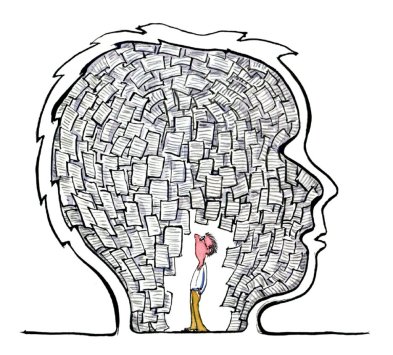
As they say ‘a picture is worth 1000 words’, How would you describe a picture when your total active vocabulary in only that much?
Developing your Active Vocabulary is indeed time-consuming as there are no shortcuts but the good news is: ‘if done well the words stay with you for many many years’ as also there are many usages of the same word.
It’s true that you acquire new words by being in the English environment or by watching TV. But, ‘as you begin to speak’ you must continuously learn them and do conscious efforts to use new words until you reach a level of comfort with English. Make 2-3 sentences of different types using the new word and finally, speak it out (or write it in your mail). Here are the sure ways to Activate Words – I suggest keep it to 5 new words a day.
What are good ways to Learn Words?
You learn words when you Listen or Read or when you do Both – watching a movie with sub-titles for example. Start doing ‘anything that you can do or like to do’ in English – watch any funny video clip on Youtube, a movie with or without subtitles, a serial on Star-world or Discovery, News on DD or BBC, English song, reading newspaper or a novel, cooking using a recipe, sharing a joke, writing a letter or email… reading your text-book, looking at an advertisement, filling-up a form, even reading this post. Good thing is and in India there are a lot opportunities for you to carry-out your work in English. Pick-out 30 min. in a day as your English time where you can easily get 5 new words…. take the words from me the day you cannot pick your words from your work place.
Your most important task is to build up your Active vocabulary. A limited vocabulary will hold you back, and prevent you from speaking English effectively. The Vocabulary starts multiplying very fast after you reach a certain stage where you can understand different forms of the same word, pick the synonyms and antonyms… and then do different usages of these words. In my view learning ‘5 new words’ a day is what you should target (do more when you miss doing it on any day) and add words regularly… make it a habit!
Did you click on the link just above, on the word synonyms? It’s linked to http://www.vocabulary.com I recommend bookmarking this site, the best online English Vocabulary tool and it has one of the fastest dictionary. You may also sign-in to keep your lists and work with them and run a quiz on the words that you know. Not only does it provide excellent definitions but it also allows you to hear how the word is pronounced. You will also find the latest usages of the words in Political or Business News. Practice saying them out loud to yourself and others. And if you forget the correct pronunciation or are confused ask your trainer for help – even with different usages of the word you can seek his/her help.
What is the best way to retain a word and bring it into usage?
How many times in my class have I told about: flash cards? … I have also put it on the pin-up board. There is no better method. Word lists ‘that I sometimes provide to you’ are also useful but flash cards are the time-tested method for memory retention. After making a flash card, start learning the usages of the word. Keep it with you until you’ve learned it. Try your new words on friends in the class or speak it out with me — they may get impressed.
Google is great! -we all love it. I wish we had the Internet and online dictionaries when I was a student. But sometimes pen & paper is the way: use post-it notes or cut a chart to make yourself Flash-cards. They stay with you for as long as you get complete comfort with the word.
An idea: you may also use differently colored Flash-cards for different types of words, Yellow for Nouns, Orange for Adjectives and maybe Green for Verbs etc.
Remember the end-game: Use ‘new words’ in conversation whenever and wherever you can. I expect my students to learn 5 words everyday!

